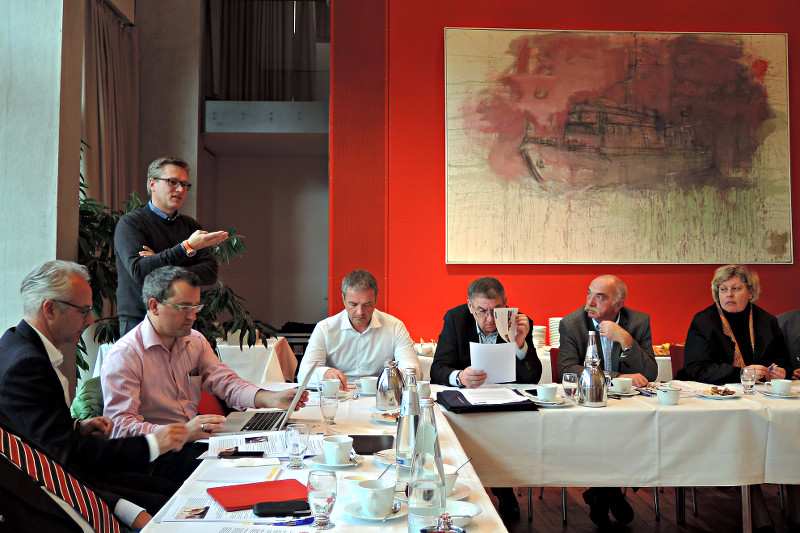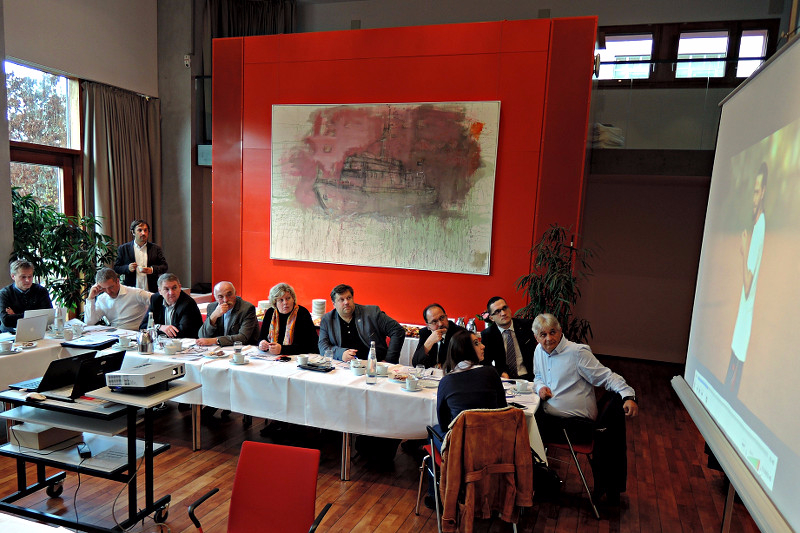SAM.I. presidium meets on refugee aid
Posted on |
 On Monday, 9 November, European Samaritans from nine countries came together in the representative office of the State of Bremen in Berlin to discuss further cooperation in refugee aid.
On Monday, 9 November, European Samaritans from nine countries came together in the representative office of the State of Bremen in Berlin to discuss further cooperation in refugee aid.
Representatives from Denmark, Serbia, Hungary, Italy, Austria and Germany briefed each other on the current situation in their countries and reported from about their ongoing aid operations. It became clear that the employees and volunteers are working beyond the limits of their capacity and around the clock in all affected countries.
The president of SAM.I. and MEP Knut Fleckenstein stressed:
„We have to increase the cooperation with our partners, to give the aid workers of the most strongly affected associations a break.”
The Samaritan organisations from the Czech Republic, Slovakia and Romania offered their support in the form of medical teams for first aid and immediate support measures.
All ten organisations present agreed to increasingly work together in the coming year, and also to put a particular focus on integration measures.
 Following the motto: „When numbers become faces“ there will be several joint activities in 2016. By formulating positions and recommendations toward decision makers, the SAM.I. members will give a voice to refugees and aid workers alike on the European level.
Following the motto: „When numbers become faces“ there will be several joint activities in 2016. By formulating positions and recommendations toward decision makers, the SAM.I. members will give a voice to refugees and aid workers alike on the European level.
SAM.I. Secretary General Dr. Ivo Bonamico made clear: „It is important to turn statistics into people, who carry a story with them and who need our help, be it in Germany, Serbia or Italy.“
The network will join forces to work to help the refugees to properly arrive and be able to integrate in their new home and participate in society.
All SAM.I. members agree that the key for this is to foster civic commitment and neighbourly help, to bring people together. It also remains important to make an effort to develop real perspectives of living in the refugee’s countries of origin once again.

